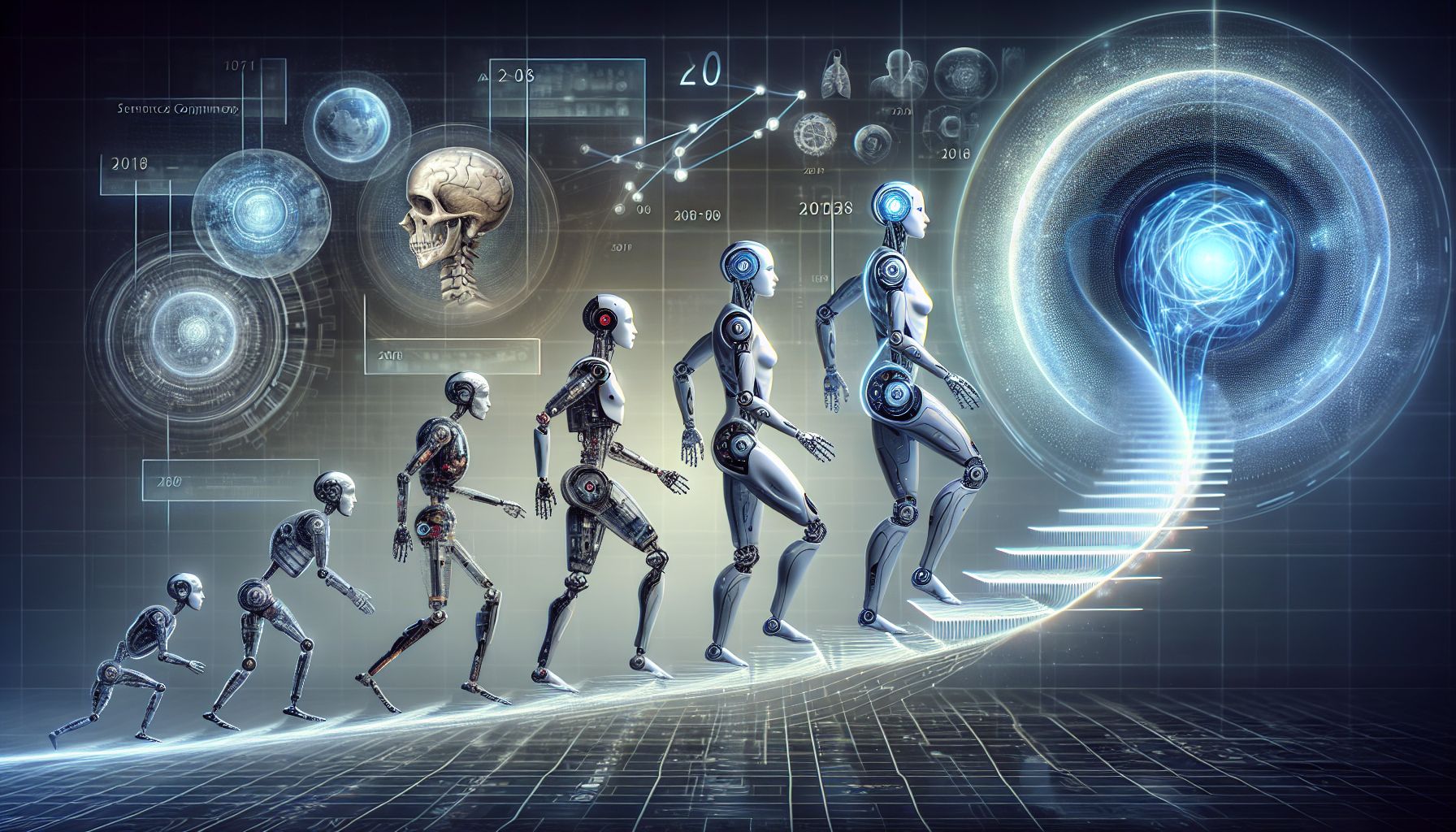📌 Let’s explore the topic in depth and see what insights we can uncover.
⚡ “Once the stuff of science fiction, artificial intelligence now edits our photos, powers our voice assistants, and even drives our cars. But is this just the beginning or have we hit the AI ceiling?”
Greetings, curious humans! 🖖 Ever since we’ve begun tinkering with technology, we’ve dreamed of creating machines that can think and learn like us. Today, we’re living in that future. Artificial Intelligence (AI) has become a staple in our everyday lives, whether we’re asking Siri for the weather forecast, or Netflix is suggesting our next binge-watch. But how did we get here, and where are we going next? Strap in for a journey through the past, present, and future of AI. In this post, we’ll be exploring the evolution of AI, how it’s impacting our lives today, and what we can expect in the future. We’ll dive into how AI has revolutionized various industries and what challenges lie ahead. So lean back, grab a cup of coffee ☕, and let’s take a trip down memory lane and into the future of AI.
🔍 Unpacking AI: From Science Fiction to Reality

"Mapping the Evolutionary Journey of Artificial Intelligence"
The concept of artificial beings with intelligence can be traced back to ancient myths and legends, but the term “Artificial Intelligence” was first coined in 1956 by John McCarthy at the Dartmouth conference. Since then, AI has evolved from a novel concept to a ubiquitous reality. AI is a broad term that encompasses several subfields, including machine learning (ML), where algorithms learn from data, and deep learning, a subset of ML inspired by the human brain’s neural networks. Let’s not forget natural language processing (NLP), which enables machines to understand and interact with human language, and computer vision, allowing machines to visually interpret the world around them. These advancements have been made possible, in part, by the explosion of digital data and the rapid progression of hardware. But, like any good story, the journey of AI has had its ups and downs, including “AI winters” where progress stalled and funding dried up. Yet, despite the challenges, we’ve seen AI transform from a lofty dream to a tangible, impactful technology.
🌍 AI Today: Changing How We Live, Work, and Play
AI has permeated our lives, often in ways we don’t realize. Here are some examples:
Personal Assistants
Siri, Google Assistant, and Alexa use AI to understand our commands, learn from our behaviors, and help us with daily tasks.
Entertainment
Netflix and Spotify use AI to analyze our viewing or listening habits and suggest content we might enjoy.
Social Media
AI helps filter our news feeds, detect fake news, and even recognize our friends in photos.
Shopping
Online retailers like Amazon use AI to analyze our buying patterns and suggest products.
In our workplaces, AI is used in recruitment (AI can screen resumes more quickly than a human), customer service (chatbots), and even in healthcare for diagnosing diseases. The possibilities are boundless!
🚀 AI and the Future: Infinite Possibilities, Infinite Questions
As we look to the future, the potential applications of AI are vast and exciting. Here are a few areas where AI is set to revolutionize:
Healthcare
AI can analyze medical images, predict patient risk, and even assist in surgery.
Transportation
Autonomous vehicles could redefine how we commute and travel.
Climate Change
AI can help us understand and mitigate the effects of climate change by predicting weather patterns, optimizing energy usage, and more.
Space Exploration
AI-powered robots could help us explore other planets.
Of course, with great power comes great responsibility. As AI continues to advance, we’re faced with many ethical and societal questions. How do we ensure AI is used for good and not harm? How do we prevent bias in AI algorithms? How will AI impact jobs and the economy? The answers to these questions are complex and require global cooperation and regulation. But one thing is certain: AI will continue to shape our world in ways we can only imagine.
💡 AI in Your Hands: Getting Involved in the AI Revolution
You don’t need to be a computer scientist to be part of the AI revolution. There are many ways you can get involved:
Stay Informed
Read up on AI developments and understand how they might impact your life and work.
Learn
📎 You’ll find that many online resources and courses to learn about AI, from beginner to advanced levels.
Advocate
Speak up about the ethical use of AI, and support regulations that protect against misuse and bias.
Try AI Tools
Many AI tools are available for free online. Play around with them and see what you can create!
🧭 Conclusion
As we’ve journeyed through the past, present, and future of AI, it’s clear that this technology has transformed, and continues to transform, our world in remarkable ways. From humble beginnings at the Dartmouth conference to permeating our daily lives, AI has come a long way. The future of AI holds infinite possibilities, but it also presents significant challenges and questions. As we continue to explore these uncharted territories, it’s crucial for us all to stay informed, engaged, and thoughtful about how we want this technology to shape our world. So, what part will you play in the future of AI? The journey is just getting started, and there’s room for all of us on this spaceship. 🚀
🤖 Stay tuned as we decode the future of innovation!
